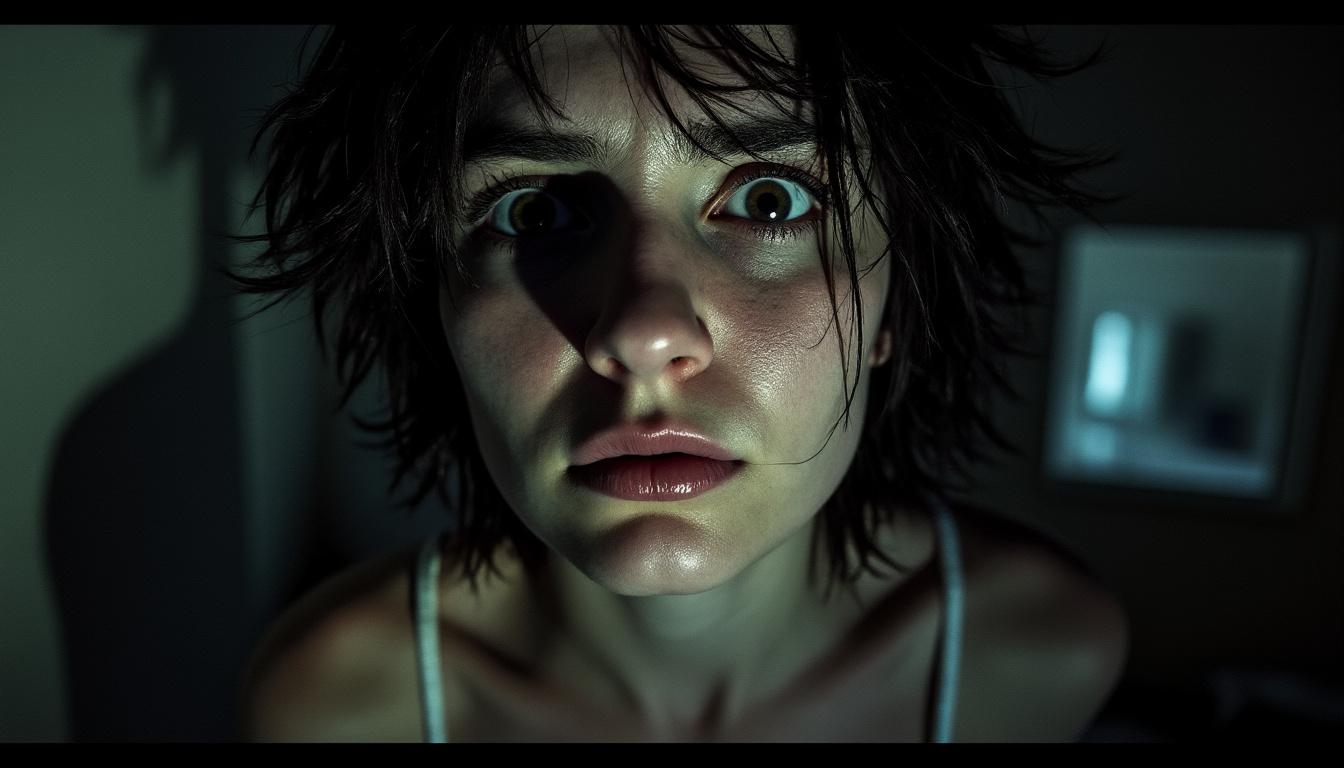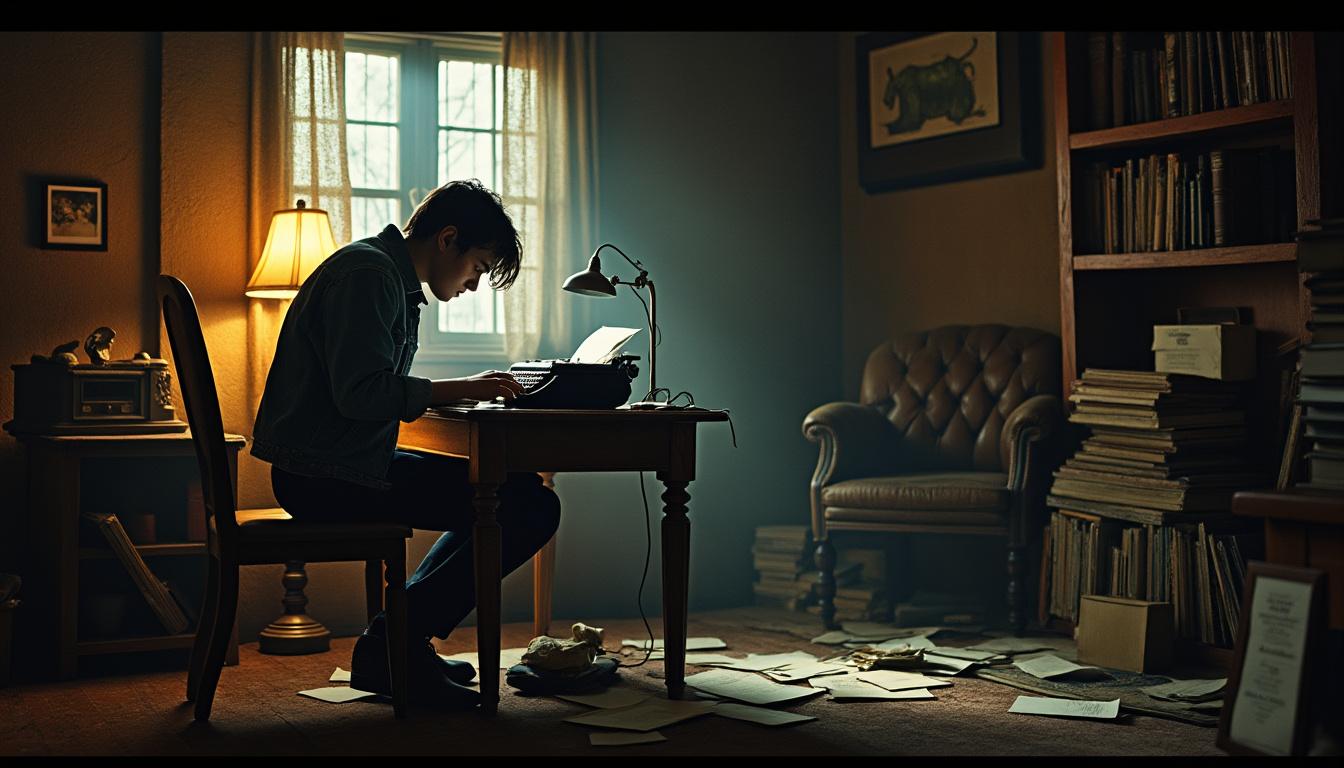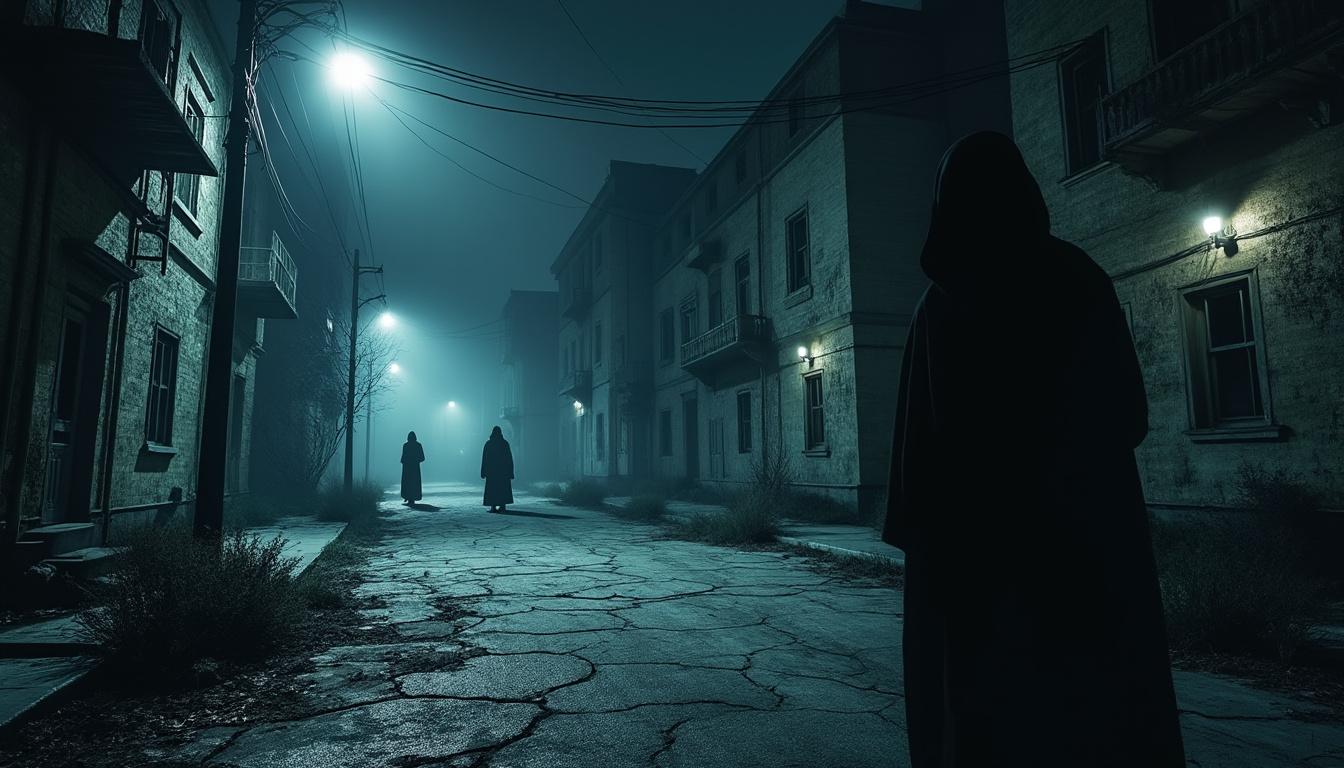The entertainment industry is often enamored with narratives that explore the spectrum of human experience, but few stories have the power to haunt audiences quite like horror, especially when it takes on a real-world subject matter. Enter Greta Lee, an actress known for her standout performances in projects like Past Lives, who is poised to make her mark in the horror genre as she takes the helm for her directorial debut in The Eyes Are the Best Part, a serial killer film that promises to delve into the disturbing psyche of its characters. This fascinating transformation from actress to director is garnering attention, particularly following Lee’s recent successes in both Past Lives and the upcoming Tron: Ares. As she steps into this new role, expectations are high for how she will interpret the complexities of horror through her lens.
Unveiling Greta Lee: A Journey from Actress to Director
Greta Lee’s trajectory in Hollywood has been nothing short of remarkable. Initially breaking onto the scene with a guest role on Law and Order: Special Victims Unit, she quickly transitioned into more substantial roles. Her Broadway debut in The 25th Annual Putnam County Spelling Bee showcased her versatility, which she later channeled into captivating performances in critically acclaimed series like Russian Doll and The Morning Show. Each role carved a niche for her as a talented character actress capable of delivering depth and nuance.

However, it was her role in Past Lives that truly catapulted her into the spotlight. The film, a beautifully woven tapestry of love, fate, and nostalgia, earned recognition at various award shows, marking a significant milestone in Lee’s career. Her performance was lauded by critics, earning her a nomination for Best Actress at the Golden Globes, underscoring her ability to connect with audiences on a profound emotional level.
The Shift to Directing: A Creative Leap
With such a strong foundation in acting, transitioning to directing might seem like a natural step. Yet, it is a significant leap that requires a unique perspective on storytelling beyond performing. Lee’s decision to direct The Eyes Are the Best Part speaks volumes about her ambition and versatility as an artist. The film adapts Monika Kim’s psychological horror novel and explores the complex themes of familial strife exacerbated by trauma and isolation, providing a rich canvas for Lee’s directorial vision.
Narrative Depth in Horror
Horror as a genre often serves as a reflection of societal fears and anxieties. In The Eyes Are the Best Part, the story revolves around Ji-won, a Korean-American college student whose world unravels after her father’s abandonment and her mother’s tumultuous relationship with a problematic partner. This psychological horror film is poised to not only entertain but also provoke thought regarding issues like racism and misogyny.
- Exploration of identity and belonging
- Family dynamics and their impact on mental health
- Responses to societal pressures faced by marginalized communities
Such weighty themes enhance the chilling narrative, anchoring it in a reality that many can relate to, which is what makes horror compelling in the first place. Critics have already remarked on how Kim’s novel examines “the horrific world of murder and cannibalism,” while also offering incisive critiques of societal norms surrounding femininity and race.
The Production Team: Powerhouse Collaboration
The film’s production team adds another layer of credibility. With Jackson House, known for notable works like I Wanna Dance With Somebody and The Trial of the Chicago 7, on board, expectations for quality storytelling are set high. Lulu Wang and Dani Melia, both celebrated filmmakers in their own right, lend their producing acumen to the project, increasing anticipation that this psychological thriller will deliver a gripping narrative while pushing the boundaries of genre.
| Production Company | Notable Works |
|---|---|
| Jackson House | I Wanna Dance With Somebody, The Trial of the Chicago 7 |
| Lulu Wang | The Farewell |
| Dani Melia | Expats |
Insights Into the Horror Genre: What Sets It Apart
The horror genre has seen a significant evolution over the years, and its ability to reflect cultural discourse has never been more pronounced. Films that once relied heavily on jump scares and gore are increasingly leaning toward psychological horror—where real human experiences drive the terror. Greta Lee’s foray into horror is indicative of this shift, seeking to merge psychological depth with visceral fear, enabling a richer audience experience.
In recent years, studios such as A24 and Blumhouse Productions have revived interest in horror by championing stories that address contemporary issues while also delivering chills. Such films often feature complex female protagonists, subverting traditional horror tropes. For instance, A24’s Hereditary and Blumhouse’s Get Out not only terrified viewers but also opened dialogues about grief and racism, respectively.
- A24: Known for psychological and art house horror
- Blumhouse Productions: Popularized low-budget horror blockbusters
- Universal Pictures and Columbia Pictures: Traditional horror roots
This trend continues in 2025, as filmmakers like Lee push against boundaries in their storytelling, amplifying personal narratives within the horror genre. As societal anxieties shift, horror serves as a potent medium for artistic exploration, making it an apt backdrop for Greta Lee’s directorial venture.

The Expectations for Tron: Ares: A New Chapter in a Classic Franchise
While Greta Lee is set to helm her first horror film, she is simultaneously preparing for her role in the much-anticipated Tron: Ares. As a continuation of the iconic Tron franchise, this film is garnering attention not only due to its legacy but also because it addresses the evolution of technology and its impact on society. The original films were groundbreaking, utilizing cutting-edge CGI and storytelling that redefined sci-fi cinema.
As fans await the release of Tron: Ares, there’s curiosity about how it will integrate contemporary themes like artificial intelligence and virtual realities. Lee’s involvement in this project adds another layer of excitement as she shifts from the psychological to the fantastical. Productions like Warner Bros. and Paramount Pictures have been at the forefront of such sci-fi narratives, but there’s a ruggedness in the Tron universe that many hope will continue to captivate audiences.
Sneak Peek: What to Expect from Tron: Ares
This upcoming installment seeks to deepen the lore of Tron characters while exploring the blurred lines between the digital and physical realms. It’s no wonder that director’s comments suggest *great innovation* in CGI technologies. This can enhance storytelling in ways previously thought impractical.
- Revamping character arcs
- Expanding the digital universe
- Addressing modern-day dilemmas surrounding technology
With a promising cast that boasts talents from various backgrounds, Tron: Ares aims to resonate with both new and old fans alike. Excitement continues to brew as audiences eagerly count down to its release, always hoping for the magic that once captivated them.
| Cast Member | Notable Work |
|---|---|
| Greta Lee | Past Lives |
| Jared Leto | House of Gucci |
| Emma Ludbrook | Criminal Minds |
| Jodie Turner-Smith | The Last Ship |
How Indie Films Inspire Mainstream Projects
The path from indie projects to mainstream cinema is often paved with innovation and bold storytelling. Greta Lee’s trajectory is a testament to this crossover, as her roles in indie films have equipped her with a unique perspective that she is now channeling into larger productions. This transition underscores the symbiotic relationship between indie and mainstream filmmaking.
Many blockbuster hits today draw inspiration from indie films—from their narrative styles to the kinds of stories they tell. The flexibility and creative freedom found in independent cinema allow for experimentation that is frequently mirrored in larger productions. Universal Pictures and Sony Pictures often adapt successful indie franchises to widen their audience reach.
- Examples of successful indie films transitioning to major studios:
- Jordan Peele’s Get Out: Gained massive traction from its low-budget roots.
- Lady Bird: Became a cultural phenomenon while maintaining indie sensibilities.
- Moonlight: An Academy Award winner that shocked audiences and critics alike.
The evolution of Greta Lee into the horror director space exemplifies how indie film experiences enrich mainstream projects, ultimately leading to a fusion of storytelling elements that resonate deeply with audiences.



